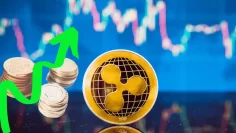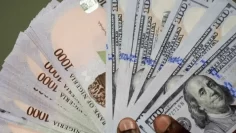
Nigeria’s External reserves dropped by $167.2m as naira crumbles further
NIGERIA, July 1 – The country’s external reserves depleted by $167.2m in July, as the naira fell further to the dollar.
Figures obtained from the Central Bank of Nigeria on movement of external reserves showed that the reserves which ended June 30, 2023 at $34.12bn, fell to $33.95bn as of July 28, 2023.
In the past two weeks, the naira fell from 820/$ to 868/$ at the parallel market on Monday.
At the I&E window on the FMDQ, the naira trading commenced at 784.91/$ and reached a high of 830/$ before closing at 756/$.
A Bureau de Change Operator in Lagos, Mr Abudul Ahmed, said, “We bought and sold the dollar today (Monday) at 860/$ and 868/$.”
Speaking on the forex pressure with The PUNCH, the President, Association of Bureau De Change Operators of Nigeria, Aminu Gwadabe, said, “Optimism is giving way to pessimism with continuing lack of confidence in our local currency. This has led to increase in Fx holding position, hoarding and speculation.
“The core objectives of the harmonization of the multiple exchange rate is to discourage arbitrage and rent seeking, however, the recent trajectory does not seem to achieve that.”
He added that, “The increasing demand of oil marketers, investors backlog, school fees and travellers have continue to mount demand pressure on the limited dollar availability in the market.”
To immediately address the looming situation of the local currency, he said, “We need to ensure additional foreign finance either bilaterally or multilaterally to enhance liquidity.”
At the last Monetary Policy Committee meeting in Abuja, The acting Governor, Central Bank of Nigeria, Folashodun Shonubi, said the bank would address the demand pressure on the country’s exchange rate, as the naira continued to slide against the dollar.
The accretion to external reserves remained weak while foreign exchange demand pressures persisted, he said.
Shonubi said, “The market needs to find its level. There is pent-up demand which the market cannot cater to. Once we clear this demand, the volatility will normalize. We have started intervening, and we would continue to intervene until the market gets to our level.”










